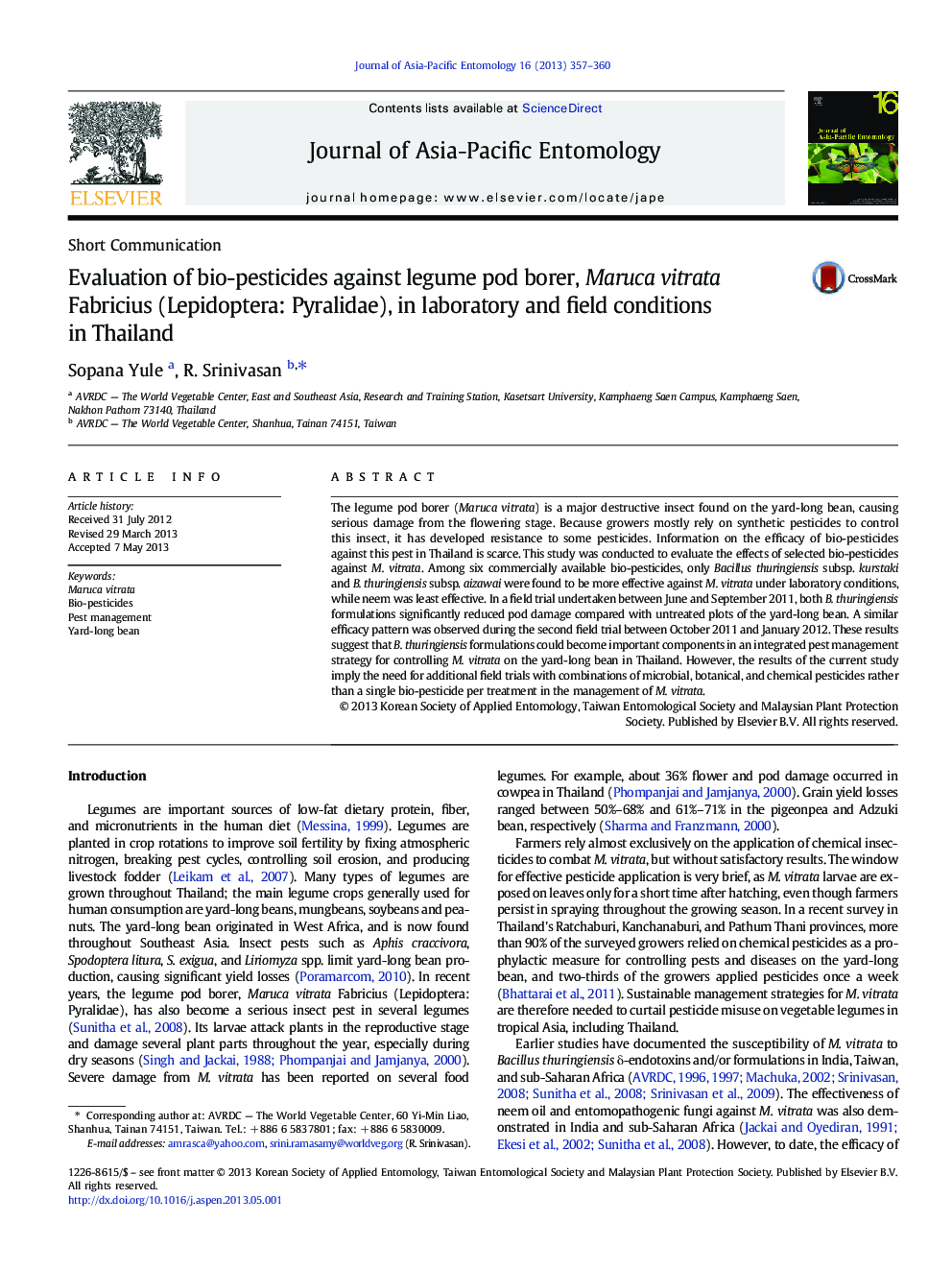| Article ID | Journal | Published Year | Pages | File Type |
|---|---|---|---|---|
| 4524503 | Journal of Asia-Pacific Entomology | 2013 | 4 Pages |
•Effects of selected bio-pesticides were evaluated against Maruca vitrata•Bacillus thuringiensis was more effective, but neem was least effective against M. vitrata•Both B. thuringiensis formulations significantly reduced pod damage in yardlong bean
The legume pod borer (Maruca vitrata) is a major destructive insect found on the yard-long bean, causing serious damage from the flowering stage. Because growers mostly rely on synthetic pesticides to control this insect, it has developed resistance to some pesticides. Information on the efficacy of bio-pesticides against this pest in Thailand is scarce. This study was conducted to evaluate the effects of selected bio-pesticides against M. vitrata. Among six commercially available bio-pesticides, only Bacillus thuringiensis subsp. kurstaki and B. thuringiensis subsp. aizawai were found to be more effective against M. vitrata under laboratory conditions, while neem was least effective. In a field trial undertaken between June and September 2011, both B. thuringiensis formulations significantly reduced pod damage compared with untreated plots of the yard-long bean. A similar efficacy pattern was observed during the second field trial between October 2011 and January 2012. These results suggest that B. thuringiensis formulations could become important components in an integrated pest management strategy for controlling M. vitrata on the yard-long bean in Thailand. However, the results of the current study imply the need for additional field trials with combinations of microbial, botanical, and chemical pesticides rather than a single bio-pesticide per treatment in the management of M. vitrata.
Graphical abstractFigure optionsDownload full-size imageDownload as PowerPoint slide
